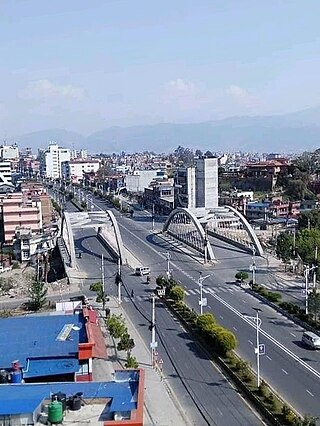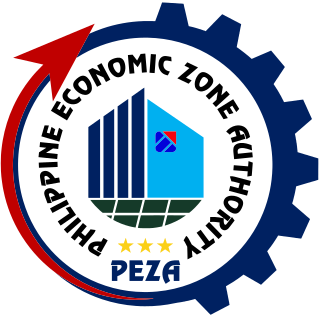Related Research Articles

The economy of Grenada is largely tourism-based, small, and open economy. Over the past two decades, the main thrust of Grenada's economy has shifted from agriculture to services, with tourism serving as the leading foreign currency earning sector. The country's principal export crops are the spices nutmeg and mace. Other crops for export include cocoa, citrus fruits, bananas, cloves, and cinnamon. Manufacturing industries in Grenada operate mostly on a small scale, including production of beverages and other foodstuffs, textiles, and the assembly of electronic components for export.

The economy of Honduras is based mostly on agriculture, which accounts for 14% of its gross domestic product (GDP) in 2013. The country's leading export is coffee (US$340 million), which accounted for 22% of the total Honduran export revenues. Bananas, formerly the country's second-largest export until being virtually wiped out by 1998's Hurricane Mitch, recovered in 2000 to 57% of pre-Mitch levels. Cultivated shrimp is another important export sector. Since the late 1970s, towns in the north began industrial production through maquiladoras, especially in San Pedro Sula and Puerto Cortés.

The economy of North Macedonia has become more liberalized, with an improved business environment, since its independence from Yugoslavia in 1991, which deprived the country of its key protected markets and the large transfer payments from Belgrade. Prior to independence, North Macedonia was Yugoslavia's poorest republic. An absence of infrastructure, United Nations sanctions on its largest market, and a Greek economic embargo hindered economic growth until 1996.

The economy of Nepal is a developing category and is largely dependent on agriculture and remittances. Until the mid-20th century Nepal was an isolated pre-industrial society, which entered the modern era in 1951 without schools, hospitals, roads, telecommunications, electric power, industry, or civil service. The country has, however, made progress toward sustainable economic growth since the 1950s. The country was opened to economic liberalization, leading to economic growth and improvement in living standards when compared to the past. The biggest challenges faced by the country in achieving higher economic development are the frequent changes in political leadership, as well as corruption. Nepal has consistently been ranked as one of the poorest countries in the world.

The economy of Tajikistan is dependent upon agriculture and services. Since independence, Tajikistan has gradually followed the path of transition economy, reforming its economic policies. With foreign revenue precariously dependent upon exports of cotton and aluminium, the economy is highly vulnerable to external shocks. Tajikistan's economy also incorporates a massive black market, primarily focused on the drug trade with Afghanistan. Heroin trafficking in Tajikistan is estimated to be equivalent to 30-50% of national GDP as of 2012.
A special economic zone (SEZ) is an area in which the business and trade laws are different from the rest of the country. SEZs are located within a country's national borders, and their aims include increasing trade balance, employment, increased investment, job creation and effective administration. To encourage businesses to set up in the zone, financial policies are introduced. These policies typically encompass investing, taxation, trading, quotas, customs and labour regulations. Additionally, companies may be offered tax holidays, where upon establishing themselves in a zone, they are granted a period of lower taxation.
A free-trade zone (FTZ) is a class of special economic zone. It is a geographic area where goods may be imported, stored, handled, manufactured, or reconfigured and re-exported under specific customs regulation and generally not subject to customs duty. Free trade zones are generally organized around major seaports, international airports, and national frontiers—areas with many geographic advantages for trade.

An industrial park, also known as industrial estate or trading estate, is an area zoned and planned for the purpose of industrial development. An industrial park can be thought of as a more heavyweight version of a business park or office park, which has offices and light industry, rather than heavy industry. Industrial parks are notable for being relatively simple to build; they often feature speedily erected single-space steel sheds, occasionally in bright colours.

Nepali tea is a beverage made from the leaves of tea plants grown in Nepal. They are distinctive in appearance, aroma and taste, but are similar in many ways to tea produced in Darjeeling, perhaps because the eastern zones of Nepal have geography and topography similar to Darjeeling. Its relatively smaller production quantities mean that teas from Nepal are less well known than those from Darjeeling.
The economic history of the Republic of Turkey had four eras or periods. The first era had the development policy emphasizing private accumulation between 1923 and 1929. The second era had the development policy emphasized state accumulation in a period of global crises between 1929 and 1945. The third era was state-guided industrialization based on import-substituting protectionism between 1950 and 1980. The final, era was the opening of the economy to liberal trade in goods, services and financial market transactions since 1981.

Maharashtra Industrial Development Corporation (MIDC) is a project of the government of Maharashtra state in India and is the leading corporation of Maharashtra. It provides businesses with infrastructure such as land, roads, water supply, drainage facilities and street lights. Dr. Vipin Sharma, IAS, is the CEO of MIDC Maharashtra Industrial Development Corporation.

The Ministry of Commerce and Industry administers two departments, the Department of Commerce and the Department for Promotion of Industry & Internal Trade. The head of the Ministry is a Minister of Cabinet rank.

India–Nepal relations are the bilateral relations between the Republic of India and the Federal Democratic Republic of Nepal. Both countries initiated their relationship with the 1950 Indo-Nepal Treaty of Peace and Friendship and accompanying secret letters that defined security relations between the two countries, and an agreement governing both bilateral trade and trade transiting Indian territory.
Trade is a key factor of the economy of China. In the three decades following the dump of the Communist Chinese state in 1949, China's trade institutions at first developed into a partially modern but somewhat inefficient system. The drive to modernize the economy that began in 1978 required a sharp acceleration in commodity flows and greatly improved efficiency in economic transactions. In the ensuing years economic reforms were adopted by the government to develop a socialist market economy. This type of economy combined central planning with market mechanisms. The changes resulted in the decentralization and expansion of domestic and foreign trade institutions, as well as a greatly enlarged role for free market in the distribution of goods, and a prominent role for foreign trade and investment in economic development.

The Ministry of Economic Affairs is the ministry of the Republic of China (Taiwan) responsible for formulating policy and laws for industry and trade, foreign direct investment, energy, minerals, measurement standards, intellectual property, state-owned enterprises. The ministry is a cabinet level government agency of the Executive Yuan.

Foreign trade of the United States comprises the international imports and exports of the United States. The country is among the top three global importers and exporters.

The Ministry of Investment, Trade and Industry, abbreviated MITI, is a ministry of the Government of Malaysia that is responsible for international trade, industry, investment, productivity, small and medium enterprise, development finance institution, halal industry, automotive, steel, strategic trade. The ministry has its headquarters located at Menara MITI on Jalan Sultan Haji Ahmad Shah in Kuala Lumpur and the building is also a component of Naza TTDI’s 75.5-acre KL Metropolis, a mixed development that is envisioned to be the International Trade and Exhibition District for Kuala Lumpur. It is one of the three ministries that has not moved to Putrajaya.

The Nepalese Ministry of Minister of Industry, Commerce and Supplies is a governmental body of Nepal to monitor and manage industries of the country.

The Philippine Economic Zone Authority (PEZA), formerly known as the Foreign Trade Zone Authority (FTZA) and Export Processing Zone Authority (EPZA), is a Philippine government agency attached to the Department of Trade and Industry.
References
- 1 2 Zhongming, Zhu; Wangqiang, Zhang; Wei, Liu (2019). "Macroeconomic Update: Nepal (September 2019)".
{{cite journal}}: Cite journal requires|journal=(help) - ↑ "Six years on, Nepal's first economic zone struggles to find investors" . Retrieved 2021-12-08.
- 1 2 Gyanwali, Gokarna Prasad (2020). "Special Economic Zones (SEZ): Challenges and Opportunities in Nepal". Research Nepal Journal of Development Studies. 3 (2): 49–61. doi: 10.3126/rnjds.v3i2.34481 . ISSN 2631-2131. S2CID 234402940.
- ↑ "Special Economic Zone (First Amendment) Act 2075: A Review Neftake". NEF. 2019-05-22. Retrieved 2021-12-08.